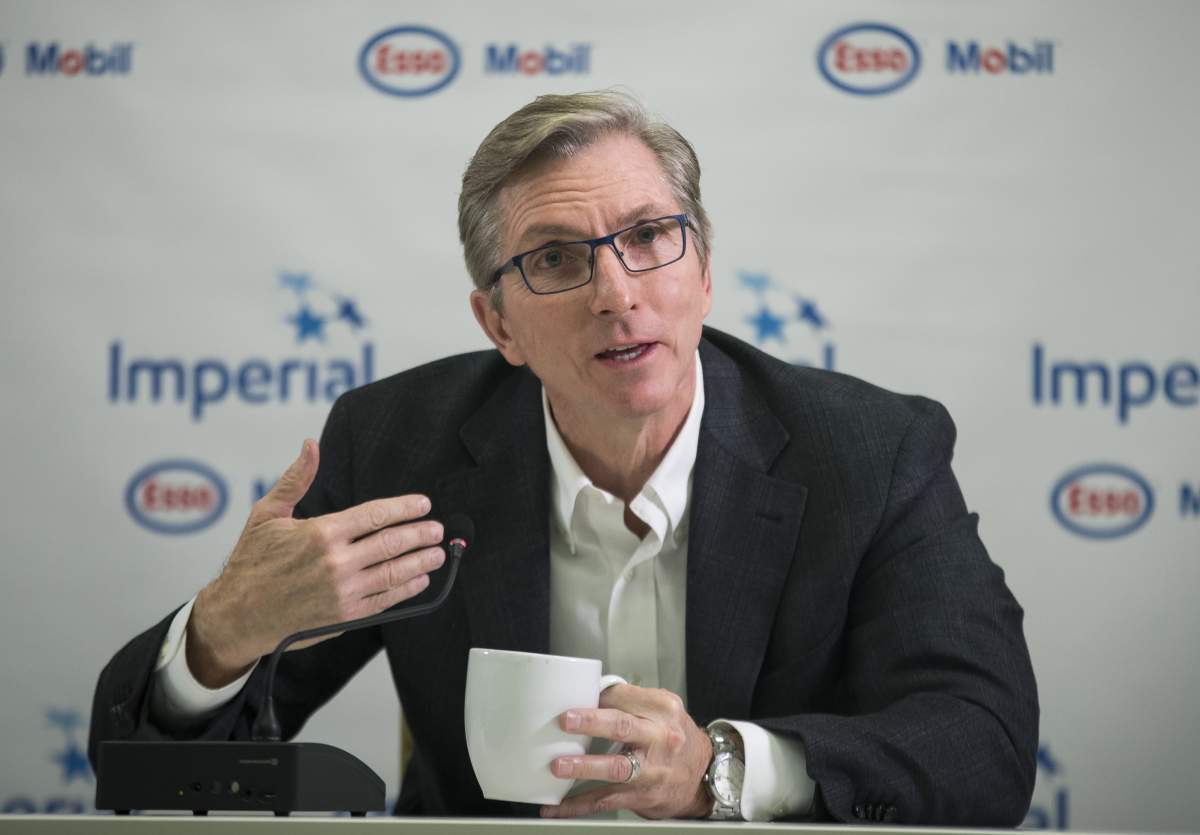A familiar face is returning to Canada’s oil industry: Rich Kruger has been named the new chief executive of Suncor Energy Inc. after a months-long search.

A near 40-year veteran of global energy giant ExxonMobil, Kruger led Canadian subsidiary Imperial Oil Ltd. as president and CEO from 2013 until his retirement in 2019.
The Calgary-based oil producer and refiner made the announcement Tuesday, bringing an end to months of speculation and anticipation by analysts and investors.
The 63-year-old Kruger, who will take the top job on April 3, will replace interim CEO Kris Smith, who stepped in to fill the role after Mark Little resigned in July 2022 amid investor pressure and in the wake of a spate of workplace deaths and safety incidents.
A worker death in July was the fifth fatality at the company since 2019.
Suncor said Tuesday that following a transition period, Smith will assume the role of chief financial officer and executive vice-president of corporate development after Suncor’s annual general meeting on May 9.
Alister Cowan, the current CFO, is set to retire at the end of the year, the company said Tuesday.

Get weekly money news
The naming of Kruger as CEO should satisfy those who wished to see change at the top of Suncor, said Scotiabank analyst Jason Bouvier in a note Tuesday.
“We view these changes as positive as it will provide those in the market that wanted a change in leadership with an actionable event,” Bouvier said.
“Rich brings considerable oilsands experience and a strong history of operational safety to the role.”
Two of the board directors serving on the CEO search committee were named to Suncor’s board in July, as part of a deal the company struck to appease U.S.-based activist investor Elliott Investment Management.
Elliott publicly expressed frustration last spring at what it called a recent decline in performance at the energy producer.
The activist investor also criticized Suncor for its safety record. At least 12 workers have died at the company’s oilsands operations in northern Alberta since 2014, and former CEO Little resigned just one day after the most recent fatality.
Many analysts believe Elliott was pushing for new leadership at Suncor. However, Eight Capital analyst Phil Skolnick said the naming of Kruger was a surprise.
“While there was speculation that an outsider was about to be named as the new president and CEO, this was not a name thrown out there in recent conversations with investors,” Skolnick said in a note.
Kruger’s time at the helm of Imperial Oil was the culmination of his 39-year career with parent company Exxon Mobil Corp. He brings to his new role “considerable oilsands experience and a strong history of operational safety,” said Bouvier.
Skolnick added Kruger was “held in high regard” by the investment community during his time at Imperial, and said investors are likely to expect a “complete positive change” in the safety culture at Suncor under his leadership.
TD Securities analyst Menno Hulshof pointed out that Kruger has deep knowledge of the oilsands, with Imperial and Suncor having assets next to each other in the region and refineries in the same jurisdiction.
In addition, Imperial and Suncor are both joint venture partners in the Syncrude oilsands project, which Suncor operates.
“Mr. Kruger will be a very quick study on (Suncor’s) portfolio, in our view,” Hulshof said in a note.
On Tuesday, Suncor board chair Mike Wilson thanked Smith for taking on the interim CEO role, crediting him with taking “decisive action to drive necessary improvements in Suncor’s performance” since taking over from Little.
In his eight months at the helm, Smith has implemented a number of changes aimed at improving worker safety at Suncor sites.
As the company reported its fourth quarter earnings last week, Smith told analysts that collision awareness systems are scheduled to go live at Syncrude’s Aurora mine by the end of the first quarter, and Suncor is also on track to complete implementation of collision awareness and fatigue management technology systems across all nine of its oilsands sites.
The company is also reducing the size of its contractor workforce by 20 per cent, a move Smith has said will reduce the number of exposure hours that put the company at risk for workplace injuries or fatalities, while also lowering costs.

— With files from Reuters








Comments
Want to discuss? Please read our Commenting Policy first.